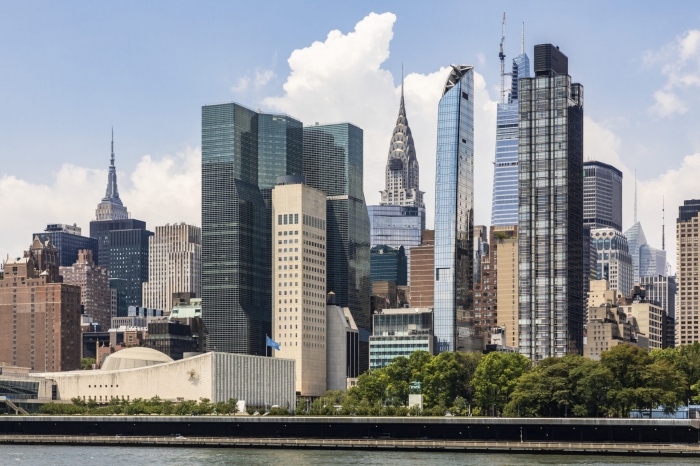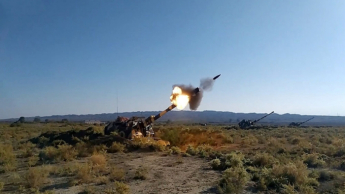A Turkish skyscraper next to UN headquarters - a symbol of ambitions or loyalty to the Euro-Atlantic course?

|

For quite some time now, many Western analysts and experts wrote that Turkey is turning away from Europe and the United States, and is moving towards the east (China, Russia). It is worth noting that such predictions and assessments are not devoid of logic.
For quite some time now, many Western analysts and experts wrote that Turkey is turning away from Europe and the United States, and is moving towards the east (China, Russia). It is worth noting that such predictions and assessments are not devoid of logic.
Especially considering the domestic policy that Erdogan and his party have been pursuing over the years, as well as the almost insurmountable differences between Washington and Ankara on a number of issues, in particular, the issue of cooperation of the United States with Kurdish organizations in northern Syria.
However, there is another trend that has recently become noticeable, which is the trend towards strengthening the alliance and partnership with Western partners, primarily, of course, with the UK and the US. A few days ago an opening ceremony for a new skyscraper called "Turkevi" , built by Turkey right next to the UN building, took place in New York. Turkish consulate, as well as permanent mission of Turkey to the UN will be located there.
On the one hand, this move may again be a reminder of Erdogan's statements about the UN Security Council and the need to reform the UN in general. Perhaps, to a certain extent the new skyscraper is intended to serve as a starting point for Turkish initiatives to reform the UN and the Security Council. This certainly is an indication of Turkey's ambitions for the role of a global player. On the other hand, the new skyscraper also sends a signal to the supporters and opponents of Turkey's distancing from the West. Ankara still values and attaches great importance to relations with the United States, and despite the problems accumulated in bilateral relations, the Turks are apparently not willing to throw away decades of partnership.
This is a good signal for both Washington and the Greater Middle East.
Another notable detail is the meeting of British Prime Minister Boris Johnson and Turkish President Recep Tayyip Erdogan in that same skyscraper. The two leaders could have met on the sidelines of the UN session, but they chose the Turkevi skyscraper instead. Erdogan is also known for his love of symbolism. Clearly, London was not against such symbolism, because meetings at this level are agreed by the parties in advance.
Large-scale reformatting of the Greater Middle East region becomes inevitable with every passing year, especially against the backdrop of growing expansionism of Iran, as well as Russia and China in this region.
Against the background of growing tensions between the United States and China, and Washington's desire to concentrate as much forces and resources as possible on the "Chinese front", and with consideration to the UK's withdrawal from the EU and the adoption of the new concept of "Global Britain", it becomes increasingly obvious that in the long run Washington and London will not be able to defend their positions by relying only on paramilitary groups and smaller countries of the region that do not have even 10% of the military and operational capabilities that Turkey has.
Perhaps it is a difficult choice for Washington and London: to either allow the region to be slowly devoured by Iran, China and Russia, or to try to build with Turkey's involvement a new concept of security and deterrence.
Ali Hajizade is a Middle East analyst and founder of tgme.org. He tweets at @AHajizade.
(If you want to contribute and have specific expertise, please contact us at [email protected])
The Rocket and Artillery formations of the Azerbaijan Army conduct live-fire exercises in accordance with the combat training plan for 2021, the Ministry of Defense of Azerbaijan told Baku Tribune.
LAST NEWS






.jpg&h=67&w=67&zc=1&q=100)












